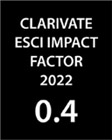Az európai integráció és a területi együttműködések hatása a piacgazdaságok regionális politikájára
DOI:
https://doi.org/10.17649/TET.5.4.226Absztrakt
In the 1970s, the expansion phase of monopolistic accumulation was changed for a decentralized phase of economic development based on strong market role in the developed indusrial countries. The role of energy intensive industries, which had been the driving force of development earlier, decreased, and the number of people employed in services was higher than that of those employed in traditional production. Services have more flexible and new spatial demands than traditional sectors.
The new economic paradigm, which is based on small and medium enterprises instead of Fordist large units expressedly influenced the development of regional policy. Previously developed consents changed. Economic restructuring came to the forefront of government economic policies. Limited central budgets and favoured new economic branches (tertiary and quaternary sectors) forced the traditional regional policy to revaluate. Traditional solutions lost their earlier economic and political importance, and the outlines of new regional strategies were drawn. It is not accidental, that at the turn of the 1970s and 1980s, almost all the West European countries elaborated new legislation for regional policy, or at least significantly modernized the earlier ones.
Parallel with the changes in national regional policy meeting economic changes, the regional policy of EEC was also amended. The need for a new srategy was partly born out of the need to harmonize the policies of member countries, and partly to grant programs and means to moderate regional differences whichbecame increasingly emphasized with the growth of EEC.
In the meantime, the regional and power structure of West European countries also changed. The political manifestation of economic decentralization was the new division of labour between the central governments and the regional local governments. The regional government who got more titles and more power, partly became capable of being the initiators of new national regional policies, and partly to become the regional basis of post- 1992 EEC reform activities.
The author believes, that in the decade to come, the regional policy of developed European societies will develop at the crossing of the post- Fordist economic policy of „fiexible" accumulation, the regional policy of EEC, the decentralized power, and regionalism.
In his study, the author deals with the analyses of the last two elements.
In the first part of the paper, the regional differences of EEC are investigated. The second part reviews the different means of community regional policy.
In summary: Hungary' s associate membership in EEC requires, that the country' s regional policy should be developed in the direction, that power among the central government, the local authorities and their regional communities should be devided so that adaptation to modernization centres should not only be infiuenced by central norms, but autonomous local and regional decisions should give answers to the market and development challenges.
##submission.downloads##
Megjelent
Hogyan kell idézni
Folyóirat szám
Rovat
License
A folyóiratban publikálni kívánó szerzők elfogadják a FELHASZNÁLÁSI ENGEDÉLYBEN részletezett feltételeket.






